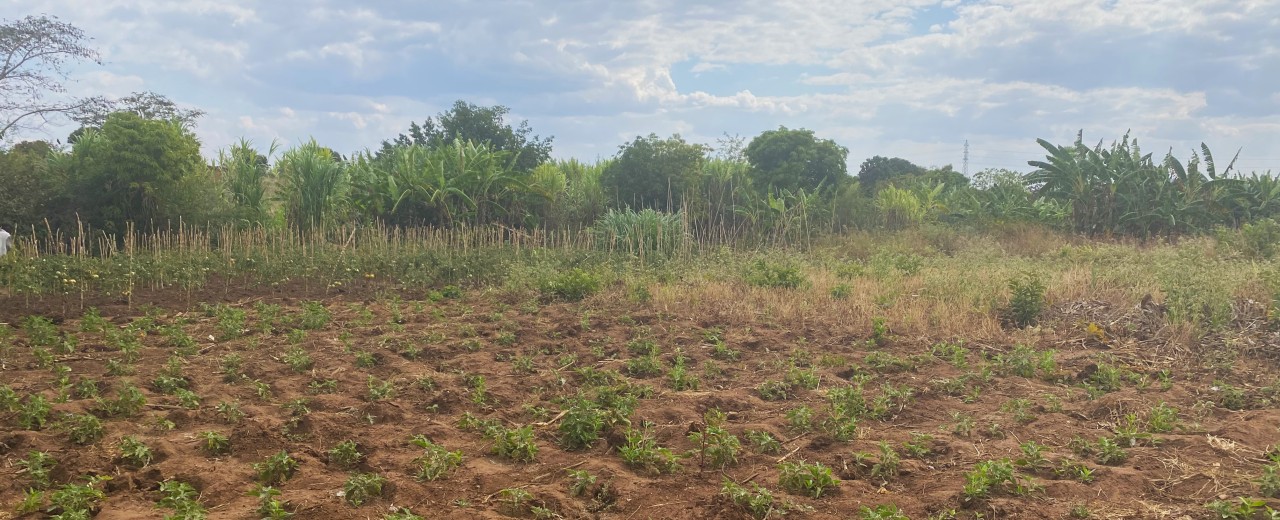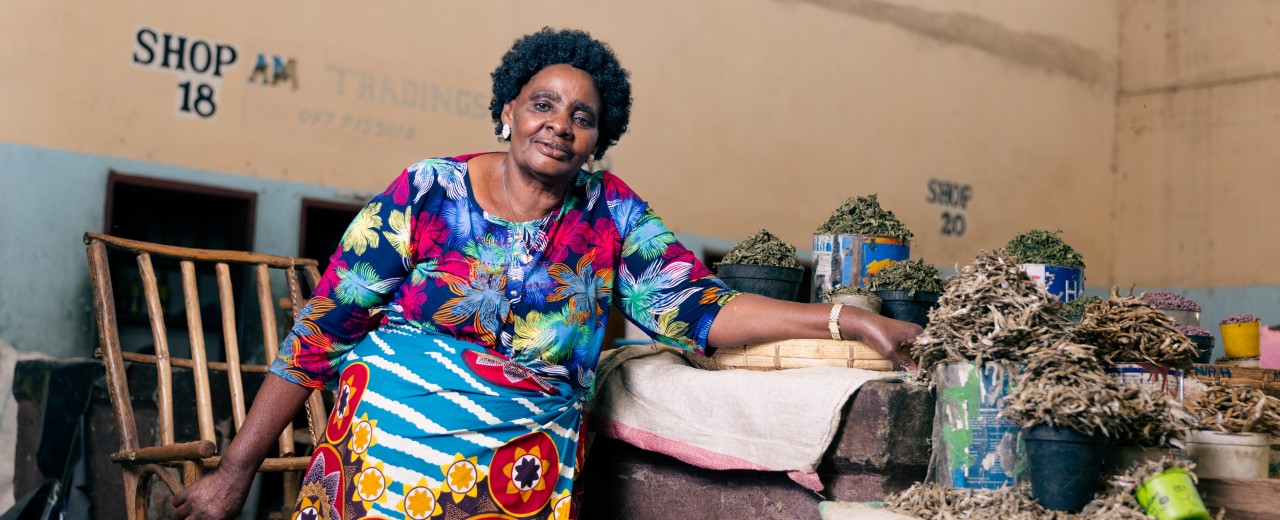Tip: Activate javascript to be able to use all functions of our website

An extra 7 euros a month makes a difference. The difference between a mother in Zambia only preparing one meal a day or two. Hunger and undernourishment are widespread in the country in southern Africa. About half of the population is considered extremely poor, living on less than USD 2.15 per day. Around a third of people are undernourished, and even more suffer from malnutrition.
In addition to several consecutive years of drought and the pandemic, the Russian war in Ukraine is increasing poverty. This disrupts global supply chains, which also leads to higher prices for energy, food and fertiliser in Zambia. A vicious circle: because of the high prices, less fertiliser is used, which reduces agricultural yields and makes products even more expensive. To help the poorest of the poor, the African state has been paying social benefits since 2003. The social security system was maintained despite fiscal problems.
KfW supports the cash transfers on behalf of the BMZ’s Special Initiative "Transformation of Agricultural and Food Systems" (SI AGER) with almost EUR 20 million, which will be paid into a World Bank fund in which other donors also participate. The particularly vulnerable population, especially single mothers, who are increasingly affected by poverty, will receive cash transfers in the amount of currently 200 Zambian kwacha (ZMW) per month, equivalent to about 7 euros.
The transfer payments not only finance food in sufficient quantity, they can also open up ways out of poverty in the medium term by providing new economic prospects to the recipients. One of the women who received support managed to save enough money for an ice machine. Now she has a regular earning from the sale of ice cream, which allows her to spend money on further education for her son. Others acquire farm animals, thereby improving their income and food situation.

Social benefits do not just mean having more money available. They contribute to substantially improve people’s living conditions. Many of the recipients organise themselves within savings groups, they exchange information and acquire financial knowledge. In this way, women get access to credit. These loans, too, open up ways out of poverty.
The payout is mostly sent as a voucher via mobile phone. The voucher can be redeemed digitally or converted into cash at a withdrawal point. The beneficiaries, many of whom did not have mobile phones, are now learning how to use them. Training is also part of the programme. Mastering the online money system opens up many new opportunities for women in everyday life. The services also reach people in remote locations: where there is no access to a mobile phone network or electricity, the services are paid out against a signature or - in the case of non-subscribers - against a fingerprint. In addition, the BMZ-funded World Bank Programme provides scholarships to enable girls to attend school.
Around 1.3 million households already benefit from the cash transfers. As a result, more than half of Zambia's poor population and more than two-thirds of its extremely poor people have been reached. Over 130,000 girls received education grants and were able to (re)enter secondary school. More than 430 young women with a secondary education degree also received a scholarship to study at a university. The project thus contributes to reducing poverty and hunger, as well as empowering women and girls in particular and promoting their independence.
Share page
To share the content of this page with your network, click on one of the icons below.
Note on data protection: When you share content, your personal data is transferred to the selected network.
Data protection
Alternatively, you can also copy the short link: https://www.kfw-entwicklungsbank.de/s/enzBvbvF
Copy link Link copied